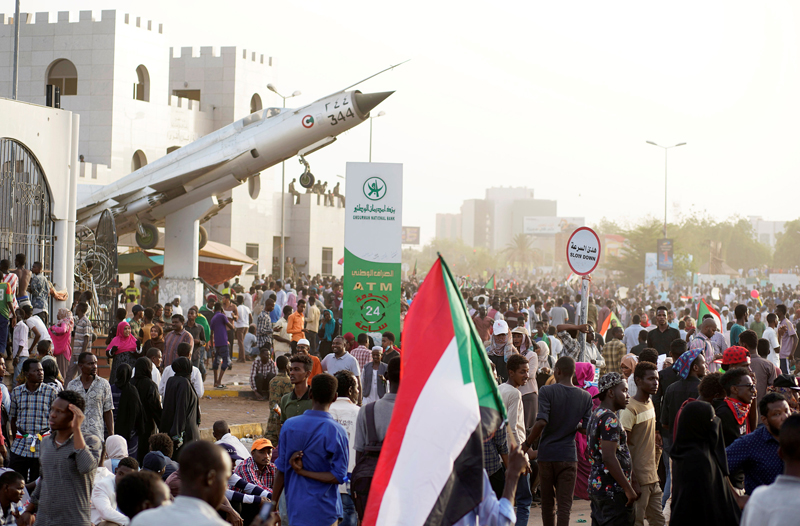What next for Sudan?

Omar Al-Bashir has ruled Sudan for almost as long as I have been alive; yet throughout my 37 years I have heard nothing but criticism of the doom he has brought upon his country.
Almost every Sudanese expat I have met was the complete opposite of what Sudan has become under Al-Bashir. I met brilliant Sudanese doctors in North America, award-winning authors and journalists in London, and outstanding PR professionals in New Zealand.
Aside from the fact that they are all hard-working, extremely well educated and successful, the other thing they have in common is that they — or their families — all fled Sudan as a result of the 1985 overthrow of the Numairi regime, which was inspired by Islamist leader Hassan Al-Turabi, who for long was Al-Bashir’s religious backer. Al-Bashir eventually became president of Sudan in 1989, while the late Al-Turabi served as the “power behind the throne” until 2001 before the relationship between the two men broke down.
Sudanese expats living abroad would tell stories of how everything changed after Al-Turabi began injecting his extremist views into society and Al-Bashir endorsed them with an iron fist.
Civil rights were stripped away; Christians were prosecuted, criticism and free thinking were punished; and the country headed toward the inevitable: A long-lasting, brutal dictatorship.
This all meant that the Al-Bashir regime did not mind watching institution after institution fail. It oversaw Sudan’s becoming one of the poorest in the region, despite its abundant resources. Typically, Khartoum blamed this on the West, for imposing import sanctions, and failed to admit its own mistakes.
It is now up to the Sudanese people — both at home and abroad — to counter the influence of the Muslim Brotherhood.
Faisal J. Abbas
The political misadventures of Al-Bashir regime are too many to list here, Darfour is an obvious example, playing host to Osama bin Laden was another (Al-Turabi and Al-Bashir provided that prior to the late Al-Qaeda chief’s move to Afghanistan.)
In a nutshell, the Muslim Brotherhood-backed Al-Bashir thrived on rifts and conflict, both regional and internal, so much so that what was one Sudan eventually became divided into two.
Furthermore, the country — which once proudly boasted that its people would rather buy books than eat if forced to choose — suffered from a massive and crippling brain drain.
Like those people I was lucky enough to meet abroad, the vast majority of educated, talented, entrepreneurial and free-thinking Sudanese people left their country and never went back.
As for those who stayed, they have been protesting since Dec. 19, 2018 against the unbearable economic conditions, corruption and political decisions that have left Sudan with very few friends around the world.
So what happens next? How do we prevent what happened in 1985 from happening again? To start with, one has to welcome the fact that the transition so far has been bloodless — as we hope it will remain.
The fact that the Sudanese army has such a strong hold on the situation is possibly both good and bad: Good because it is likely to ensure stability, but bad because unless it responds to the will of the people we might see another president remain in power for 30 years.
As for the devastating Muslim Brotherhood influence in the country, it is now up to the Sudanese people — both at home and abroad — to counter it.
• Faisal J. Abbas is the editor in chief of Arab News
Twitter: @FaisalJAbbas









































